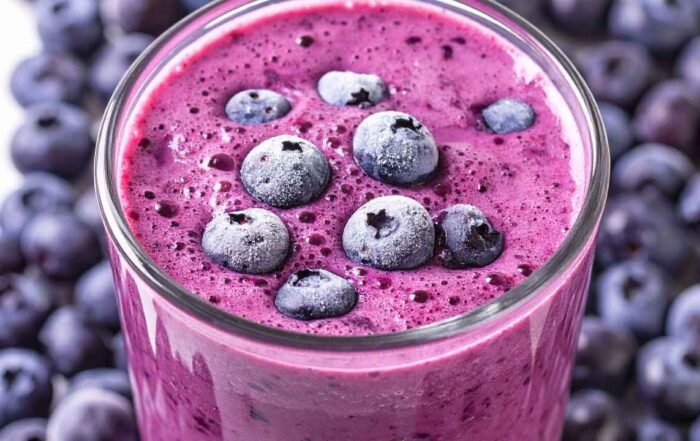
Solid meals like grains and proteins, drinks like coffee and tea, and creamy choices like smoothies and soups are among the sources of our daily nutrition. Your body needs particular nutrients to operate at its best; hence, knowing what you eat is vital for optimum health.
Every food and beverage offers particular advantages and possible drawbacks as well as unique flavors and nutritional composition. Knowing precisely what you ingest before that first mouthful or taste is essential for wise decisions. Among the most widely consumed drinks, coffee stands out for unexpected health benefits beyond its stimulant properties.
Health Benefits Of Coffee
Science shows that coffee is rich in compounds that help your whole body, not just a morning energy lift. Studies indicate coffee intake provides clear health benefits from protecting your brain to fortifying your heart. Let’s carefully look at every advantage to see precisely how your daily coffee helps to improve your general mood.

Boosts Alertness
By blocking adenosine receptors in your brain, caffeine stops the sleepy sensation that develops during the day. This natural stimulant will start in 15 to 30 minutes and keep you sharp and focused for hours.
Sharpen Memory
By raising norepinephrine and dopamine levels, coffee improves both short-term recall and long-term memory formation. Research indicate that frequent drinkers memorize more efficiently and do better on memory tests.
Antioxidants Which Fight Free Radicals
Coffee has potent antioxidants including quinides and chlorogenic acid that neutralize dangerous free radicals in your system. These substances help your whole body reduce inflammation and shield cells from injury.
Burn Fat Faster
Caffeine aids your metabolism by 3–11% and helps break down fat cells for energy. It also raises adrenaline levels, which causes your body to burn stored fat more effectively throughout exercise.
Guard The Liver
Regular coffee use lowers the risk of liver diseases including cirrhosis, fatty liver disease, and liver cancer by up to 40%. The defensive chemicals in coffee support normal liver function and stop scarring.
Escalate The Mood
Coffee activates dopamine and serotonin release, therefore your brain’s natural mood lifters. Studies indicate coffee consumers have decreased levels of depression and report better general mental wellness.
Support Heart Health
Moderate coffee consumption, 3–4 cups a day, lowers risk of heart disease by enhancing blood vessel function and lowering inflammation. Research connects regular consumption to reduced stroke risk and improved cardiovascular health.
An Essence Of Mortality
With research indicating a 10 to 15 percent lower chance of early mortality, coffee drinkers usually live longer than non-drinkers. Coffee’s capacity to simultaneously combat several illnesses defines its protective benefits.
Enhance Physical Performance
By 11 to 12%, caffeine enhances physical performance by increasing adrenaline levels and releasing fatty acids from fat tissues. Athletes frequently turn to coffee as a natural performance booster prior to exercises.
Fights Alzheimer And Parkinson
Regular coffee consumption lowers Parkinson’s disease risk by 32% to 60% and Alzheimer’s risk by up to 65%. Neuroprotective substances in coffee promote brain health and aid in the prevention of neurodegenerative disorders.

Nutrition In A Coffee
Coffee’s nutritional profile varies depending on preparation method and added ingredients, but most versions remain low in calories while providing essential antioxidants.
| Coffee Type | Serving Size | Calories | Caffeine (mg) | Protein (g) | Fat (g) | Carbs (g) | Sugar (g) | Potassium (mg) | Magnesium (mg) | Antioxidants |
| Black Coffee | 8 oz | 2 | 95 | 0.3 | 0 | 0 | 0 | 116 | 7 | High |
| Cold Brew Coffee | 8 oz | 3 | 100 | 0.2 | 0 | 0 | 0 | 125 | 8 | High |
| Cinnamon Coffee | 8 oz | 4 | 95 | 0.3 | 0 | 1 | 0 | 118 | 8 | Very High |
| Oat Milk Latte | 8 oz | 130 | 63 | 3 | 3 | 23 | 7 | 270 | 15 | Medium |
| Protein Coffee | 8 oz | 120 | 95 | 20 | 1 | 3 | 1 | 180 | 12 | High |
| Espresso | 1 oz | 1 | 63 | 0.1 | 0 | 0 | 0 | 36 | 2 | High |
| Americano | 8 oz | 3 | 94 | 0.3 | 0 | 0 | 0 | 115 | 7 | High |
| Cappuccino | 8 oz | 80 | 63 | 4 | 4 | 6 | 6 | 220 | 13 | Medium |
| French Press | 8 oz | 2 | 107 | 0.4 | 0 | 0 | 0 | 128 | 8 | Very High |
| Turkish Coffee | 3 oz | 2 | 50 | 0.2 | 0 | 0 | 0 | 45 | 3 | High |

Best Health Focused Coffee Recipes
These recipes maximize coffee’s health benefits while keeping calories low and nutrients high for optimal wellness support.
Black Coffee (Plain Brew)
Pure coffee without additives delivers maximum antioxidants and minimal calories, making it the healthiest option for daily consumption.
Cold Brew Coffee
Smooth, less acidic coffee that’s gentle on your stomach while maintaining high antioxidant levels and natural sweetness.
Cinnamon Coffee
Anti-inflammatory spice adds natural sweetness and blood sugar stabilizing properties to your morning brew.
Oat Milk Latte
Creamy plant-based option that adds fiber, protein, and heart-healthy beta-glucans to your coffee routine.
Protein Coffee
Post-workout powerhouse that combines caffeine energy with muscle-building protein for optimal recovery and performance.
One Comment
Leave A Comment










[…] Ever wonder how to make black coffee at home? Here’s a simple step-by-step guide to get you started. But before we dive into the recipe, let’s understand what It really is. Black coffee in 2025 is a popular hot beverage known for its bold flavor. It’s served without sugar, milk, or cream and is favored for both its simplicity and health benefits. […]